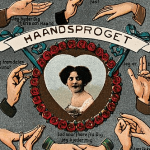 Weird Stuff
Weird Stuff  Weird Stuff
Weird Stuff  Movies and TV
Movies and TV 10 Weird Ways That TV Shows Were Censored
 Our World
Our World 10 Places with Geological Features That Shouldn’t Exist
 Crime
Crime 10 Dark Details of the “Bodies in the Barrels” Murders
 Animals
Animals The Animal Kingdom’s 10 Greatest Dance Moves
 Movies and TV
Movies and TV 10 Box Office Bombs That We Should Have Predicted in 2025
 History
History 10 Extreme Laws That Tried to Engineer Society
 History
History 10 “Modern” Problems with Surprising Historical Analogs
 Health
Health 10 Everyday Activities That Secretly Alter Consciousness
 History
History Top 10 Historical Disasters Caused by Someone Calling in Sick
 Weird Stuff
Weird Stuff 10 Wacky Conspiracy Theories You Will Need to Sit Down For
 Movies and TV
Movies and TV 10 Weird Ways That TV Shows Were Censored
 Our World
Our World 10 Places with Geological Features That Shouldn’t Exist
Who's Behind Listverse?

Jamie Frater
Head Editor
Jamie founded Listverse due to an insatiable desire to share fascinating, obscure, and bizarre facts. He has been a guest speaker on numerous national radio and television stations and is a five time published author.
More About Us Crime
Crime 10 Dark Details of the “Bodies in the Barrels” Murders
 Animals
Animals The Animal Kingdom’s 10 Greatest Dance Moves
 Movies and TV
Movies and TV 10 Box Office Bombs That We Should Have Predicted in 2025
 History
History 10 Extreme Laws That Tried to Engineer Society
 History
History 10 “Modern” Problems with Surprising Historical Analogs
 Health
Health 10 Everyday Activities That Secretly Alter Consciousness
 History
History Top 10 Historical Disasters Caused by Someone Calling in Sick
Ten Extraordinary Facts About Pungent Smells
Every day, thousands of weird and wonderful smells bombard our noses. Some of them are more bizarre than others. These aromas can trigger forgotten memories, stir up emotions, or warn us of danger. You might take your sense of smell for granted, but scientists have found strong links between loss of smell and depression and anxiety.
The world of smells is truly remarkable. From dogs that can sniff out Parkinson’s to women who may be able to sniff out unmarried men, here are ten wild facts about odors and smells.
Related: Top 10 Bizarre Smells From 18th Century England
10 Rose Perfume Can Rewire Your Brain

Perfumes aren’t usually known for their impact on the brain. Most of the time, we think of them as a way to make ourselves smell nice. Nonetheless, scientists from two universities in Japan discovered a floral scent that appears to influence brain structure.
For the study, the researchers enlisted 28 women to wear rose-scented oil on their clothes, while a control group of 22 applied plain water. After a month, they found that the brain structure of the perfumed group had changed. MRI scans revealed an increase in the volume of gray matter among the rose-oil group. They saw no impact on the people who sprayed water on their clothes.
Scientists found significant boosts in gray matter in certain regions of the brain, particularly the posterior cingulate cortex (PCC), which helps regulate thoughts and memory. Other areas linked to emotions and smells stayed roughly unchanged.
Understanding how the brain shifts and changes is key to tackling mental health. For example, when people develop Alzheimer’s, their PCCs often shrink. Scientists hope to use these findings to develop a simple aromatherapy that could one day reduce the risk of dementia.[1]
9 Super-Sniffer Dogs Detect Parkinson’s
Dogs have a remarkable sense of smell. Our canine pals can pick up tiny markers that the human nose would never be able to detect. In a 2025 study, scientists in England trained two talented pooches to sniff out Parkinson’s disease (PD).
The team taught golden retriever Bumper and black Labrador Peanut to find the condition. They were amazed at how accurately the animals identified the disease on oily skin swabs. In a double-blind test, Bumper and Peanut sniffed out PD with 98% accuracy, plus sensitivity levels of 70% and 80%. They could even pick it out in patients with other health conditions.
Currently, there is no definitive test for PD, but experts are hopeful that these findings could help them catch the condition earlier. Professor Nicola Rooney from Bristol Veterinary School explained, “I believe that dogs could help us to develop a quick, non-invasive, and cost-effective method to identify patients with Parkinson’s disease.”[2]
8 No Smell? Your Breathing Is Different
How often do you think about your sense of smell? Well, scientists in Israel say the often-overlooked sense has a significant effect on the way we all breathe. They found that people who are unable to smell take in air differently from most people.
Congenital anosmia is a condition that causes a complete lack of a sense of smell from birth. Studies suggest that people with anosmia breathe with fewer sniffs during inhalation than those without the condition. The researchers suggest that people with a working sense of smell sniff more often as they take in odors from their surroundings.
The team used nasal devices to study the breathing patterns of 52 people, 21 of whom had anosmia, and 31 did not. They found marked differences in how the two groups respired when awake and asleep.
Experts say that a lack of smell is linked to a range of severe health issues, like depression and feeling isolated. These new findings suggest that how we take in air could affect our mental health and may alter brain activity.[3]
7 Why Click Friends Literally Smell the Same
Have you ever met a new friend and just seemed to click with them almost immediately? Maybe you bonded over a shared interest or a similar passion. Or perhaps you were drawn to each other because you smelled alike.
Strange as it seems, scientists say that we are more likely to get along with people who give off a similar odor. Researchers from the Weizmann Institute of Science looked into what they call “click friends,” when two new friends just “click” from the outset.
Evidence suggests that platonic, same-sex click friends often smell like each other. The more similar their body odor, the greater the chance of them hitting it off and understanding each other. Scientists have even developed an electronic nose that can predict if two people will get along based on the scent of their T-shirts.
Believe it or not, it seems that actual chemistry has more of an impact on social chemistry than we might think.[4]
6 Sweat Scents Reveal Hidden Emotions
There are plenty of ways to work out someone’s emotional state: their body language, facial expressions, and actions, to name a few. But how about smell? Scientists say that we can use the power of our noses to discern people’s inner feelings.
In a 2023 study, European researchers explained that we can pick up smells from other people’s sweat when they are happy, anxious, or in fear. Not only that, but people with social anxiety could actually benefit from exposure to body odor.
Your emotional state determines which chemo-signals you give off in your sweat. Scientists found that women with social anxiety responded better to mindfulness therapy when exposed to chemo-signals in other people’s body odors.
The researchers were surprised to learn that it didn’t matter what kind of emotional state the person producing the odor was in. As long as the sweat samples were present, the patients’ anxiety scores dropped by up to 40%.[5]
5 The Odd Job of a Professional Smell-Maker
Working with smells all day might sound like a strange career choice. However, those in the business say it’s a surprisingly creative profession.
AromaPrime is a British firm that comes up with all kinds of bizarre scents for theme parks, museums, and attractions. They curate smell experiences by whipping up artificial odors that create an atmosphere.
Smell consultant Liam Findlay told reporters how he has worked with theme parks to create a smell that induces fear while people are queuing to ride a roller coaster. For another job, a museum approached the company to recreate the odor of a T. rex.
“We even work with care homes,” Liam explained, “to create smells that remind older people of their youth, such as liquorice and carbolic soap.”[6]
4 Single Men Give Off a Distinct Scent
When it comes to dating, it can be tricky to find an eligible partner. When you meet someone for the first time, and they aren’t wearing a ring, how do you know if they’re married? Scientists say women may have an advantage here: they could detect differences in scent between single and married men.
It might sound bizarre, but researchers in Australia found that heterosexual women could distinguish between the odors of single and married men. They presented 82 women aged 18 to 35 with sweaty underarm samples from six males. Sounds like a delightful study to take part in.
As they inhaled a noseful of each man’s body odor, the women were quizzed on “How much do you like/dislike this smell?” and “How sexy does this odor smell?” The Aussie team found that across the board, the women rated the single men’s scents as stronger and more appealing than those of the married ones.
They also showed the women photos of the men after they sniffed their sweaty pits. Turns out, the ladies preferred the looks of the gents whose scents they found more appealing.
Scientists are now trying to work out if these results are related to hormones and testosterone levels. Or perhaps single men smell stronger because the married ones have better hygiene.[7]
3 Can Smell Training Keep Dementia Away?
Boosting your sense of smell may help reduce the risk of dementia in later life. As we age, our ability to take in aromas can deteriorate, but other factors, like illness, impact our noses too. A failing sense of smell is often an early sign of dementia.
Smell and memory are tightly interwoven. Some regions of the brain are vital for both cognitive and olfactory processing. In layman’s terms, that means there are clear links between your memory, emotions, and sense of smell.
Scientists are now working on forms of scent training that they hope can bolster people’s sense of smell and help slow memory decline. Experts have put forward ideas like a device that emits scents while people are asleep, or a memory game where users have to match odors.
It’s still early days, but Dr. Leah Mursaleen of Alzheimer’s Research UK explained, “We’ve already seen some early studies suggesting that ‘training’ our sense of smell, through repeated exposure to strong-smelling substances, could have benefits in improving cognitive performance in certain tasks.”[8]
2 Your Nose Sounds the Fastest Alarm
When our bodies sense that a possible threat is near, we need to know as soon as possible. The quickest way to get that signal to the brain is through our sense of smell. The warning zips to our minds at such lightning speed that it bypasses our conscious mind.
We are startlingly quick to process negative smells—odors associated with unpleasant experiences. It takes around 100 to 150 milliseconds for signals to travel from the nose to the brain. The bad stenches trigger a response far quicker than sight, sound, and even positive smells. As mammals, being able to respond rapidly to danger is key to our survival.[9]
1 The Surprising Cancer-Fighting Power of Ripe Fruit
When we think of ways to fight cancer, most people might picture intense chemotherapy and invasive surgery. But now a new, unlikely candidate has emerged that scientists say could one day help keep tumors at bay.
Research in animals suggests that smells given off by ripening fruit can trigger key changes in the body far away from the nose. Some fresh scents have been shown to impact how genes are expressed in cells. That means that after taking a noseful of ripe goods, bodies might change how they produce natural compounds.
Research on mice and fruit flies shows the effect of inhaling diacetyl vapors, which yeast emits in fermenting fruit. Five days of exposure to the vapors altered gene expression in the brain, lungs, and flies’ antennae.
Diacetyl is known to act as an HDAC inhibitor. The smell hampers HDAC enzymes, which allows the body to create useful products more efficiently.
HDAC inhibitors are already being used to treat blood cancer in drug form. However, scientists hope that, one day in the far-off future, these findings could lead to new therapies that involve inhaling compounds. Perhaps many years from now, sniffing ripe fruit will turn out to be a much gentler way to fend off tumors.[10]








